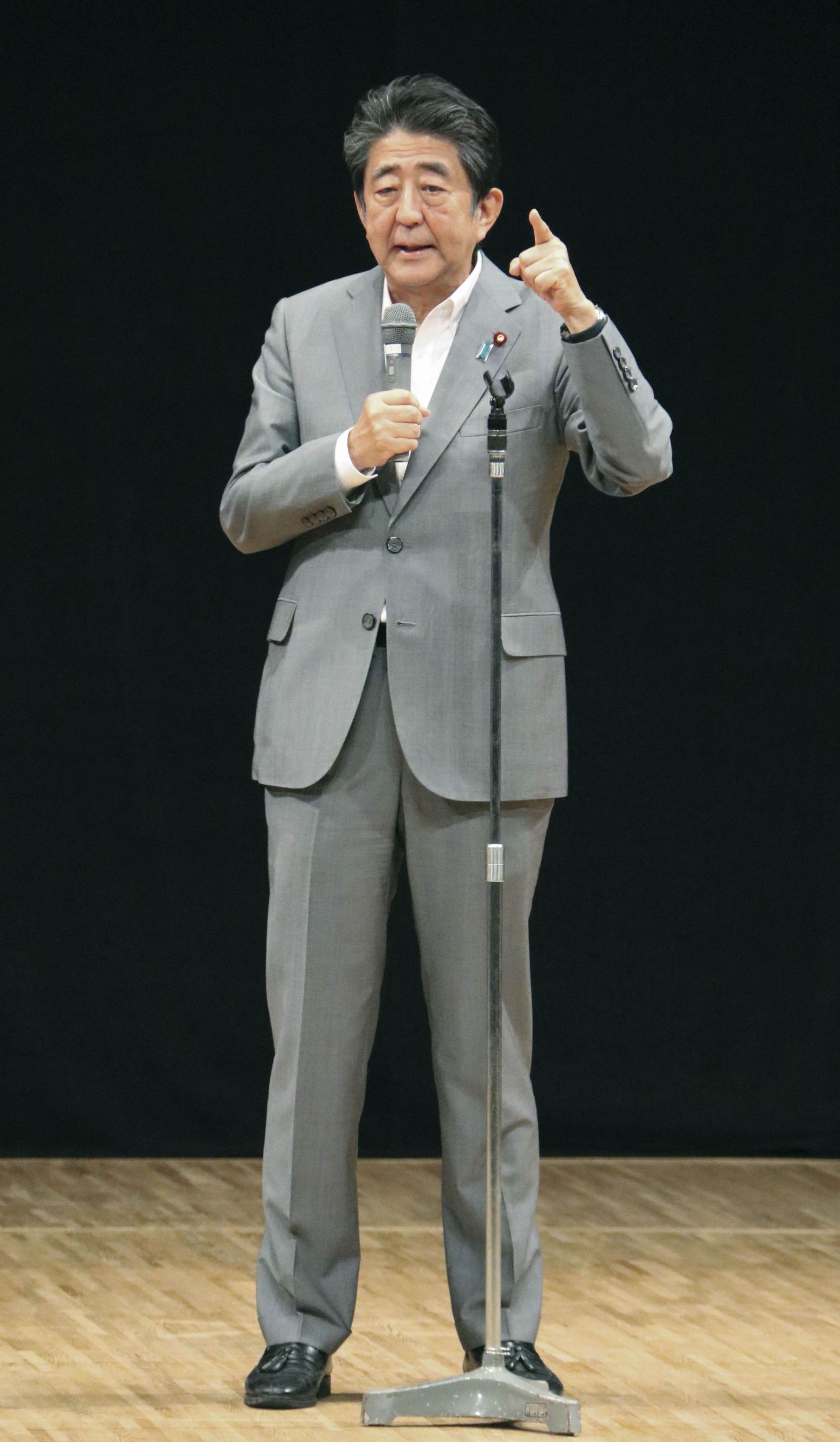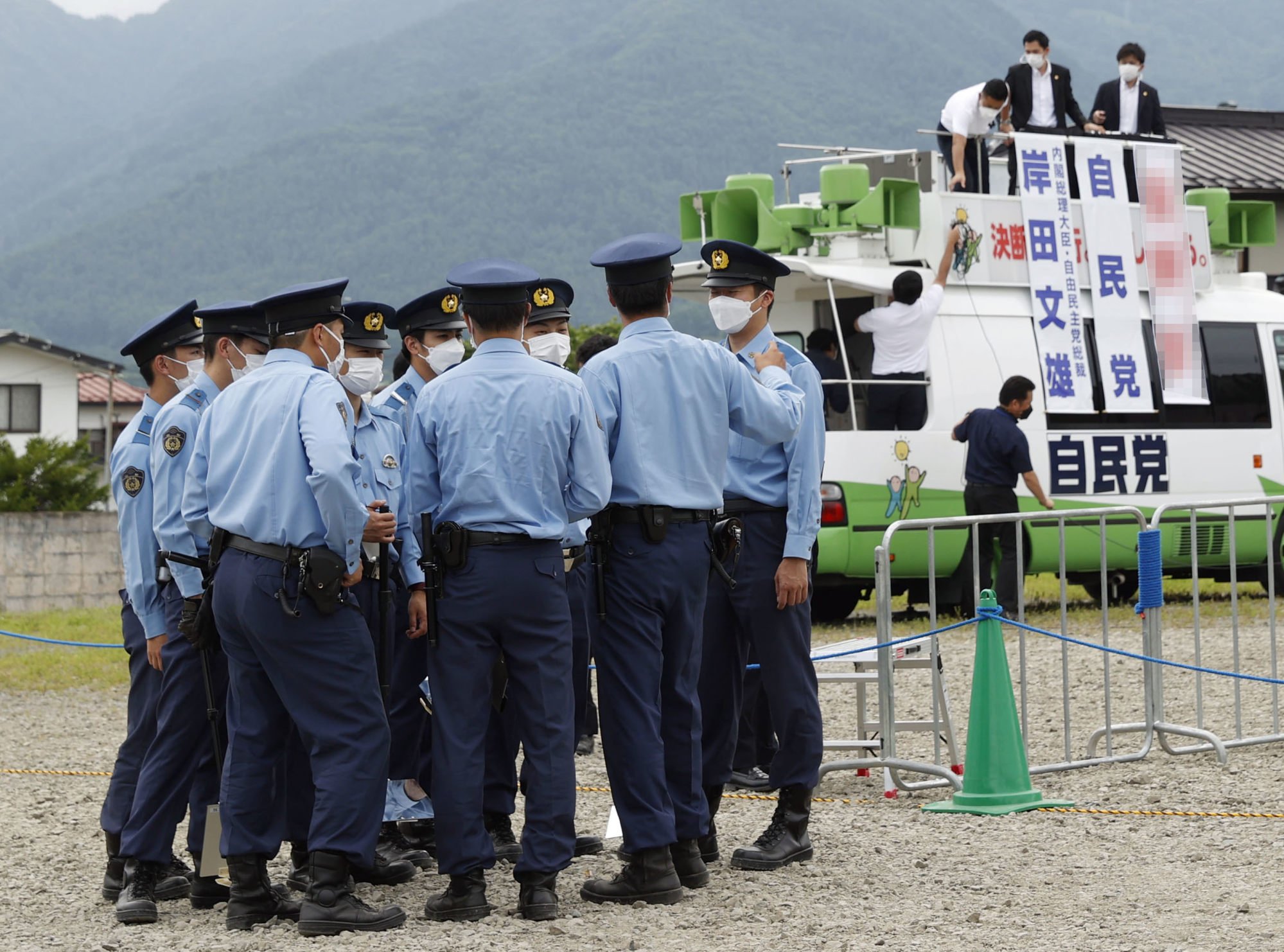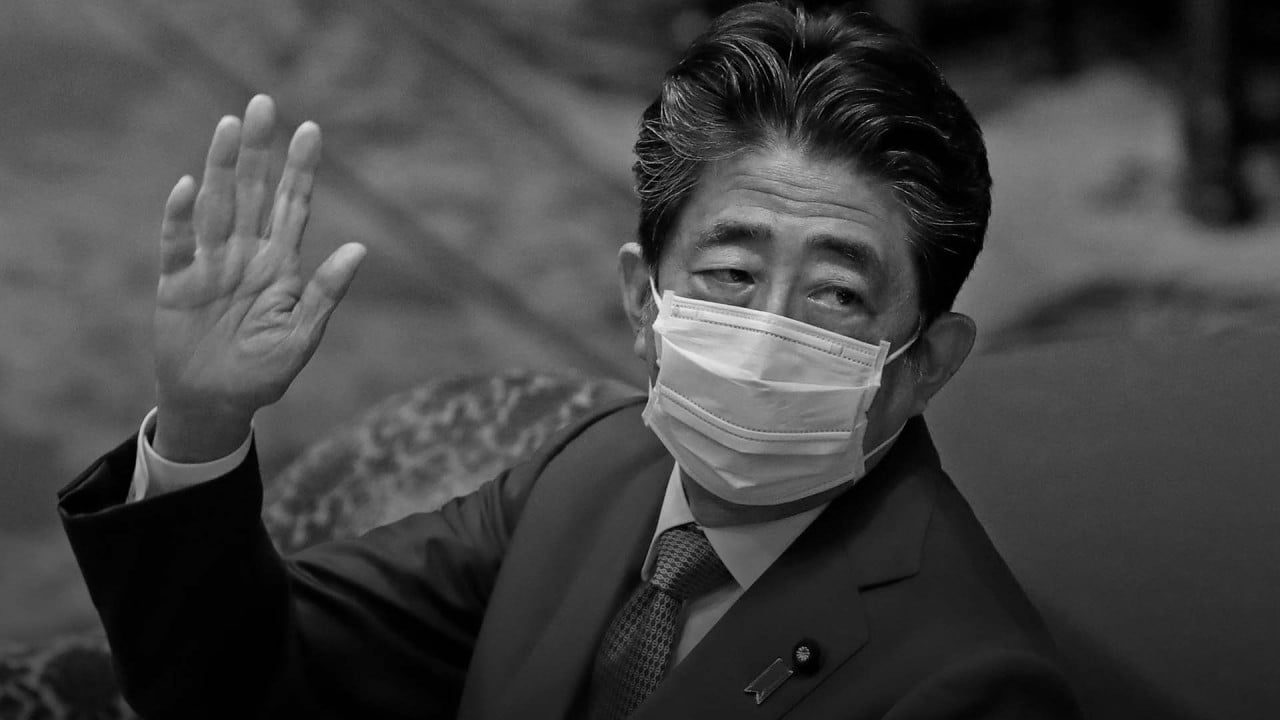
Japan exit polls in election two days after Abe’s assassination show ruling coalition projected to keep upper house majority
- Sunday’s election, which had been expected to see Abe’s Liberal Democratic Party maintain its majority, was overshadowed by his murder
- Prime Minister Fumio Kishida and other politicians had insisted the shock killing would not halt the democratic process
Japan’s ruling coalition was projected to keep its majority in the upper house of parliament on Sunday, two days after the assassination of former Prime Minister Shinzo Abe, a dominant politician and power broker.
Prime Minister Fumio Kishida’s Liberal Democratic Party (LDP), of which Abe was a senior figure, and its junior coalition partner Komeito were on track to win between 69 and 83 of the 125 seats contested in Sunday’s vote, according to NHK exit polls. Official results are expected on Monday.
The election was overshadowed by Abe’s murder but Prime Minister Fumio Kishida and other politicians had insisted Friday’s shock killing would not halt the democratic process.

Even before Abe’s murder, the LDP and Komeito were expected to cement their majority, though the final number of seats will be scrutinised for signs of whether the attack bolstered support for them.
On Sunday evening Kishida said it was important the election was able to take place given the circumstances involving 67-year-old Abe’s death. Asked about constitutional revision, he said there would be a focus on efforts to put together a bill that could be discussed in parliament.
Airo Hino, a political science professor at Waseda University, said it appeared the LDP would be able to extend its seats “and there will be enough seats won through the various parties to have the two-thirds majority needed to revise the constitution. It’s pretty much as expected but the incident two days ago may well have had an impact”.

He said “debate over revising the constitution is likely to speed up”, referring to changes Abe wanted to the pacifist constitution but never managed to achieve.
Kishida said on Saturday, during campaigning, that “we must never allow violence to suppress speech during elections, which are the foundation of democracy”.
But he also took time to pay condolences at Abe’s family home in Tokyo, where the former premier’s body arrived on Saturday afternoon from a hospital in western Japan.

The assassination rattled the nation and sent shock waves around the world, prompting an outpouring of sympathy even from nations with which the hawkish Abe had sometimes difficult relations, such as China and South Korea.
The man accused of his murder, 41-year-old Tetsuya Yamagami, is in custody and has told investigators he targeted Abe because he believed the politician was linked to an unnamed organisation.
Local media have described the organisation as religious and said Yamagami’s family had suffered financial trouble as a result of his mother’s donations to the group.
China’s Xi conveys ‘deep regret’ over sudden death of Shinzo Abe
Abe had been campaigning in the western region of Nara for a candidate from his ruling LDP when Yamagami opened fire, and local police there on Saturday admitted “problems” with the security plan for the high-profile figure.
With little violent crime and tough gun laws, security at Japanese campaign events can be relaxed, though in the wake of Abe’s murder, measures were strengthened for Kishida’s remaining appearances.
At Abe’s family home in Tokyo on Saturday, a steady stream of senior politicians dressed in black arrived to pay condolences. Outside, mourning Japanese citizens offered prayers.
“I am stunned that things like this still take place in Japan,” said Tetsuya Hamada. “It makes me sad. How it is possible that this happened in broad daylight?”

Police have promised a “thorough investigation” into what the head of the Nara regional police called “problems with guarding and safety measures” for Abe.
“I believe it is undeniable that there were problems with the guarding and safety measures for former prime minister Abe,” Tomoaki Onizuka told reporters on Saturday evening.
“In all the years since I became a police officer in 1995 … there is no greater remorse, no bigger regret than this,” the tearful police chief said.
The murder of Japan’s best-known politician has sparked international condemnation, with US President Joe Biden ordering flags flown at half-mast on Sunday and Chinese President Xi Jinping saying he was “deeply saddened”.
Local media have reported a wake for Abe will be held on Monday evening, with a funeral for close family and associates only on Tuesday.
Abe was the scion of a political family and became the country’s youngest post-war prime minister when he took power for the first time in 2006, aged 52.
His hawkish, nationalist views were divisive, particularly his desire to reform the country’s pacifist constitution to recognise the country’s military, and he weathered a series of scandals, including allegations of cronyism.
But he was lauded by others for his economic strategy, dubbed “Abenomics” and his efforts to put Japan firmly on the world stage, including by cultivating close ties with Biden’s predecessor Donald Trump.
Chinese nationalists celebrate Shinzo Abe shooting online
Kishida, 64, was once described as among Abe’s favoured successors, and holds a solid majority in parliament along with coalition partner Komeito.
Sunday’s vote was widely expected to strengthen that hold on power, leaving Kishida even better positioned to go into a “golden three years” in which he will face no further elections.
But he faces significant policy headwinds, including rising prices and energy shortages, particularly after an early summer heatwave that led to a power crunch.

.png?itok=arIb17P0)


